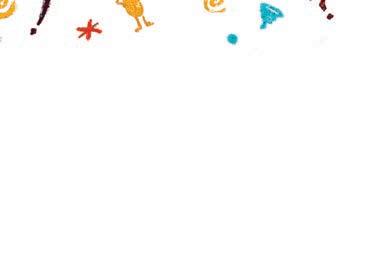
4 minute read
You Can't Fix Stupid — Health & Wellness


Advertisement

You Can’ł Fix Słupid
BY PHILIP CHARD






Einstein said there are only two things that are infinite—the universe and human stupidity. He added, “And I’m not sure about the universe.”

Even a cursory review of human history, not to mention our current circumstances, reinforces this iconic egghead’s assertion that many of our species act like idiots. Sure, we all make dumb mistakes on occasion, but I’m referring to those folks who embrace foolishness as a lifestyle, not just a behavioral hiccup. Count among them deluded conspiracy theorists, like QAnon whackos, “It will magnetize you” anti-vaxxers and a long list of politicians, pundits and contenders for the Darwin Awards who are seemingly detached from anything resembling factual reality. Regarding political types, Napoleon said, “In politics, stupidity is not a handicap.” Sadly so.

Increasingly, people ask me, “How can (fill in name of person or group) be so stupid?”, often followed by, “How can I talk sense into them?”
Well, as the trope goes, you can’t fix stupid. And while there are occasional exceptions, they are disappointingly rare. Occasionally, we hear of some conspiracy saturated lap dog who has awakened from their delusion to see the light. Think of an anti-vax, ‘It’s a hoax” COVID sufferer who, after a close brush with death, realizes they’ve been duped and exits the looney bin in their mind and walks toward the nearest vaccination site. Credit to them. It’s not easy admitting one has been walking around in a fog of “duh.”
MEASURING BEHAVIOR

While it seems counterintuitive, education is no guarantee one won’t behave stupidly. Many highly educated folks, some from prestigious universities, get on the stupid bandwagon, so an elevated IQ is not always protective in this regard.
Consequently, determining whether someone is stupid requires focusing much more on how they behave rather than on their intellectual capacity. Sure, the term stupid is sometimes applied to a person who struggles cognitively, but more often it is an individual’s behavior that earns that label. So, stupid is less about the absence of head smarts or innate intelligence and more about a paucity of what we refer to as common sense. To quote Forrest Gump, “Stupid is as stupid does.”
Whoa, you may be thinking: Who am I to define what is or is not stupid? Fair enough, so let’s reference research on the subject. Surveys show we tend to consider someone stupid when they (1) engage in impulsive or risky behavior, (2) absent-mindedly make lots of unforced errors, or (3) express and act on preposterous beliefs untethered from facts or evidence. For the most part, when we observe someone behaving in one of these manners, we shake our heads and think “how dumb.” With respect to those who profess delusional beliefs, like conspiratorial types, many of us throw in an additional label . . . “crazy.”
So, what are the drivers behind behaving stupidly? Most often, a profound lack of self-awareness, an inflated sense of personal intelligence and mastery, and never-a-doubt certainty that one

is right about . . . well, everything. In other words, stupid people don’t realize they’re clueless. One psychologist who studied them extensively found the stupid among us over-estimate their smarts and skills by a multiplier of six. That’s big. The critical element these folks lack is the willingness to question their own beliefs. As philosopher Bertrand Russell said, “The stupid are cocksure, while the intelligent are full of doubt.”
Which leads to another driver underlying stupid behavior—the fear of uncertainty. Being cocksure, as Russell put it, lowers anxiety by conjuring the delusion of certainty, of “I’ve got this.” Whenever that delusion is challenged, say by verifiable facts or contrary experiences, stupid folks feel threatened and dig in their mental heels, while smart ones re-examine their beliefs in light of new information. The delusion of certainty, which is a hallmark of human stupidity, requires believing we know more than we actually do.
Which is why trying to “talk sense’ to someone with a penchant for stupid behavior is usually spitting into the interpersonal wind. One’s recitation of evidence and reasoned arguments are no match for that person’s baseless arrogance ensconced in a largely impenetrable mental shield of self-delusion. As Euripides reminded us, “Talk sense to a fool and he calls you foolish.”
Philip Chard is a psychotherapist and author with a focus on lasting behavior change, emotional healing and adaptation to health challenges. For more, visit philipchard.com.











